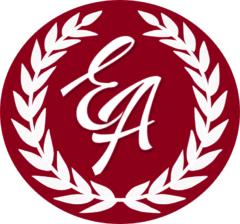What Happens When I Arrive in Canada?

Upon arrival to Canada, you will be greeted by an officer from the Canada Border Services Agency (CBSA).
You must have the following items:
- A valid passport and/or travel documents
- A valid permanent resident via and your Confirmation of Permanent Residence (COPR)
- Proof that you have the funds to support yourself and your family after you arrive in Canada
- Two copies each of:
- A detailed list of all the personal or household items you’re bringing with you
- A list of items that are arriving later and their money value
The officer will ask you a few questions to make sure you still meet the eligibility requirements to immigrate to Canada. These questions are like the ones you have already answered when you applied.
You will not be allowed to Canada if you give false or incomplete information or if you do not convince the officer that you meet the conditions to enter Canada.
If you meet all the requirements, the officer will allow you to enter Canada as a permanent resident, confirm your Canadian mailing address and have your permanent resident card mailed to you there.
Disclosure of Funds
If you arrive in Canada with more than CAN$10,000, you must tell this to the CBSA officer. If you do not, you could be fined, and your funds could be seized. These funds could be in the form of:
- cash,
- securities that belong to you (for example, stocks, bonds, debentures, treasury bills), or
- bankers’ drafts, cheques, travellers’ cheques or money orders.
Customs Declaration Card
Before you arrive in Canada, you may be asked to complete a Customs Declaration Card. Complete this card before meeting with customs and immigration officials, even if you aren’t a Canadian citizen.
Here are some typical things to declare on the declaration card:
- items you must pay duty on, such as:
- gifts
- alcohol
- tobacco
- amount of money more than CDN $10,000
- business goods, plants, food, animals, firearms or other weapons
Preparing for Life in Canada
Canada may be very different from your home country, which means there is a great deal to learn about and explore before you arrive here. Here is some information about important features about the country.
Land and Climate:
Canada is the second largest country on earth. It has three ocean borders:
- the Pacific Ocean in the west
- the Atlantic Ocean in the east
- the Arctic Ocean to the north
Canada borders the United States in the south and in the northwest.
Canada has many different types of landscape, including:
- high mountains
- prairie grasslands
- different types of forests
- arctic tundra where the ground is permanently frozen
Canada is also home to many rivers and lakes.
Seasons
In Canada, there are four different seasons:
- winter
- spring
- summer
- autumn (fall)
Cities, Provinces and Regions
Ottawa is the capital city of Canada and is located on the Ottawa River between Ontario and Quebec.
Canada has 10 provinces and three territories, each with its own capital city. These provinces and territories are grouped into five regions:
Atlantic Provinces:
- Newfoundland and Labrador
- Prince Edward Island
- Nova Scotia
- New Brunswick
Central Canada:
- Quebec
- Ontario
Prairie Provinces:
- Manitoba
- Saskatchewan
- Alberta
West Coast:
- British Columbia
North:
- Nunavut
- Northwest Territories
- Yukon Territory
Most people live in southern Ontario and Quebec, southwest British Columbia and Alberta. Much of the north has a very low population because of the cold climate.
The Canadian People
Immigration has been a key part in Canadian society’s growth throughout our nation’s history.
Canada’s population of around 31 million people reflects a cultural, ethnic and linguistic mix that is unique in the world.
Canadian multiculturalism is based on the belief that all citizens are equal and that diversity makes us stronger as a country.
Government
Canada has three levels of government:
- federal
- provincial or territorial
- municipal (city)
The Prime Minister heads the federal government based in Ottawa. It deals with national and international matters.
A Premier leads each province and territory. The provincial and territorial governments have the power to change their laws and manage their own public lands
Mayors lead municipal governments. Municipal governments run cities, towns or districts (municipalities)
Get In Touch
Contact us, or Read more on our WebsiteSend a Message
The Law Office of Evangeline Ancheta
1420 Burnhamthorpe Road East
Suite 305
Mississauga, Ontario
L4X 2Z9
Telephone: 647-977-2889
Facsimile: 905-232-1088
Email: info@anchetalaw.com
Our Location
The Law Office of Evangeline Ancheta
Read More:
Fill out our Free Assessment form to discover your opportunities to come to Canada.
Read our Immigration pages to find out about all available programs to immigrate to Canada.
Read our Temporary Residence pages to find out about ways you can come to Canada, to visit, study or work.
Read our Status and Appeals pages to find out how we can help you verify, restore or appeal your status in Canada.

0 Comments